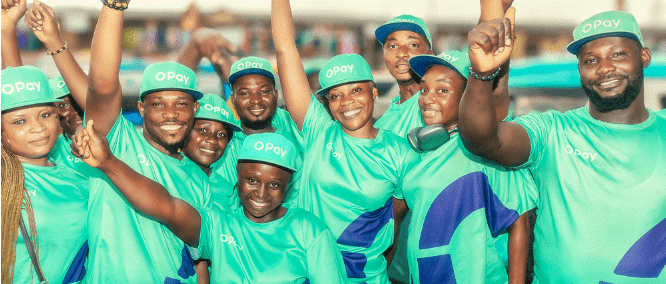MALANJE, Sept. 5 (China Economic Net)- Chinese and African leaders are meeting in Beijing from September 4 to 6 for the Forum on China-Africa Cooperation (FOCAC) focusing on friendship, cooperation, and future prospects. Digital cooperation is an indispensable part of China-Africa cooperation over the years. China is actively helping African countries narrow the digital divide, from Internet infrastructure, e-commerce APPs and talent training, to mobile payments, social media…and so on and so forth, marks a series of step in enhancing Africa's ability to improve weather forecasting capabilities. Infrastructure as top priority Since the launch of the FOCAC in 2000, Chinese companies have helped African countries add and upgrade about 150,000 kilometers of communication backbone networks, and network services cover about 700 million users. In December 2023, the highest peak of “Roof of Africa” Mount Kilimanjaro- Uhuru Peak, at an altitude of nearly 5,900 meters, Uhuru Peak, and rest camps above 3,795 meters has been covered by high-speed network for the first time. Most of the communication equipment for the facilities on Mount Kilimanjaro was provided by Huawei Tanzania. “Now, we could freely check information about weather and routes at any time during long climbing, by which greatly enhances the sense of security for our tourists,” told Mbilini, a local guide. Peter Ulanga, president of TTCL, a Tanzanian operator that cooperated with Huawei to build communications network in the region, praised the high-quality equipment. “The climate in the mountainous area changes at every moment, while these devices can still operate efficiently under the extreme conditions of Kilimanjaro.” E-commerce industry is mushrooming The overall growth of Africa’s e-commerce industry is strong. According to statistics from the German Statista data platform, the annual growth rate of Africa's e-commerce will reach 24.7% in 2024, and the annual turnover of the e-commerce industry will exceed USD 42 billion, while the figure was only USD 7.7 billion in 2017. Kilimall, an e-commerce platform from Hunan Province, China, which has been deeply involved in the African market for a long time, has developed into one of the most popular shopping websites among African people. So far, more than 8,000 Chinese and African companies and individuals have started businesses on this e-commerce platform, opened more than 12,000 stores, and sold about 1 million kinds of goods. “China’s marvelous experience in the field of e-commerce provides a useful reference for Africa,” said Nganga, a local sales director of Kilimall. Chinese consumers chose African coffee in a e-commerce industrial park [Photo provided to CEN] “Rwandan farmers could earn an extra USD 4 per kilogram of coffee beans by selling it on Chinese e-commerce platforms. Moreover, our in-depth research in Angola showed that the quality of local coffee is high-class enough, no less than that of famous “coffee holyland” such as Ethiopia. Chinese magnate Luckin Coffee uses a lot of Angolan beans. Limited by the level of technology, local farmers often face unsalable agricultural products. China’s e-commerce platforms in Africa could help African agricultural products “add wings” and fly to Chinese homes,” Prof. Yuan Guobao, Advisor to Hubei Provincial Sino-Africa Business Council, told China Economic Net. “Moreover, the platform hires local employees to trains them in e-commerce skills, which is a great achievement in truly realizing the China-Africa community with a shared future for mankind.” Digital finance making wallet invisible OPay International Pte Ltd, a one-stop mobile payment service provider initiated in China, provides digital payment, digital wallet, and other financial services to emerging market customers in Africa, which includes countries such as Nigeria, Egypt. In May this year, the emerging markets-focused fintech company announced that it had achieved a milestone of 10 million daily trading users. Shukuwemeka from Abuja, the capital of Nigeria, can’t remember the last time he went to the bank to handle business. “I can now transfer money, pay bills and make payments through OPay e-wallet, both rapid and convenient.” Opay is committed to accelerating the development of digital finance in Africa [Photo/Screenshot] According to the report Global Fintech 2023: Reshaping the Future of Finance released by BCG and QED Investors, by 2030, the compound annual growth rate of Africa’s fintech revenue will be 32%, with Africa will become one of the fastest growing fintech regions in the world. “Opay has created miracles in regions with imperfect digital payment infrastructure, such as Africa, because we have made a series of localized adaptation policies based on the actual situation. By helping local companies upgrade their digitalization, it provides convenient financial services to a large number of people without bank accounts in Africa, the Middle East, and South Asia. South Asia and Africa are highly similar in terms of economic size, infrastructure, population base, and cash payment ratio in the market. I have every reason to believe that Opay Pakistan can replicate the African miracle.” Aurang Zeb Khan, Vice President of OPay Pakistan, showed his aspiration during the interview with CEN.

China is making all-round efforts to help build a digitalized Africa
Editor:谭婕倪
Source:en.ce
Updated:2024-09-05 16:58:46
Source:en.ce
Updated:2024-09-05 16:58:46
Special
Contact
Welcome to English Channel! Any suggestion, welcome.Tel:0731-82965627
lisl@rednet.cn
zhouqian@rednet.cn











